Developmental conditions

Share this step
In the previous step, we discussed the interaction between a child’s condition, impairment and disability. Before we think about disability in more depth, we are going to improve our understanding of the conditions and impairments associated with developmental disability.
The term developmental disability covers a broad range of conditions, across a broad range of domains, including motor, sensory, cognitive and behavioural functioning. These conditions can be caused by both biological and environmental factors, including genes, toxins in the environment and malnutrition.1
Unfortunately we won’t have time to give you a comprehensive overview of each and every condition that can contribute to a developmental disability, but let’s have a think about some common examples. Below, we will consider areas of a child’s functioning that may be affected by a developmental disability and give examples of common conditions associated with each category.1,2
Domain 1. Motor
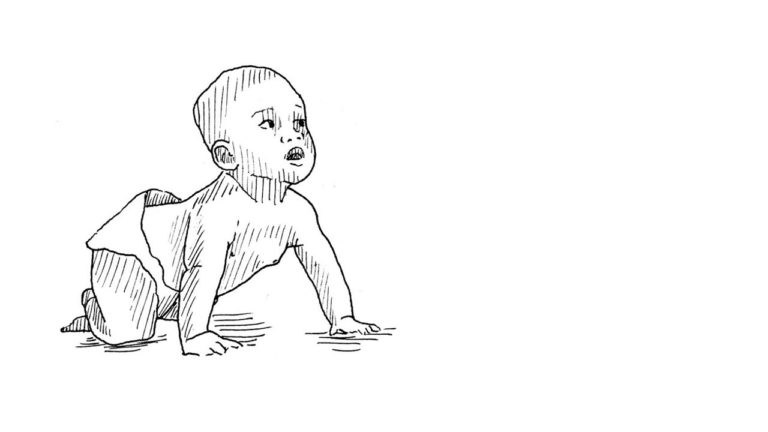 Motor skills are an essential component of child development, as they promote independent, goal-oriented actions. Typically, children develop gross motor skills (e.g. crawling, walking) and fine motor skills (e.g. pinching, using a pencil). Impairments in gross and fine motor skills may result in clumsiness, slowness and inaccuracy of motor performance, causing difficulties with many daily activities, such as playing, sports and school work. These impairments can also impede a child’s ability to feed or practice self-care, such as washing and toileting, and this can impact their long-term health and independence.
Motor skills are an essential component of child development, as they promote independent, goal-oriented actions. Typically, children develop gross motor skills (e.g. crawling, walking) and fine motor skills (e.g. pinching, using a pencil). Impairments in gross and fine motor skills may result in clumsiness, slowness and inaccuracy of motor performance, causing difficulties with many daily activities, such as playing, sports and school work. These impairments can also impede a child’s ability to feed or practice self-care, such as washing and toileting, and this can impact their long-term health and independence.
Common conditions that can cause delays in the development of motor skills include:
- Cerebral palsy: a group of disorders of the development of movement, coordination and posture, attributed to non-progressive disturbances that occurred in the developing foetal or infant brain.
- Spina bifida: incomplete development of the backbone spinal cord, causing damage to the nervous system.
- Muscular dystrophies: a group of conditions in which muscle fibres weaken gradually over time, creating difficulties in movement, balance and sometimes breathing.
- Developmental Coordination Disorder: difficulty coordinating movements means that a child has difficulty in performing everyday tasks, such as tying shoelaces.
Domain 2. Sensory
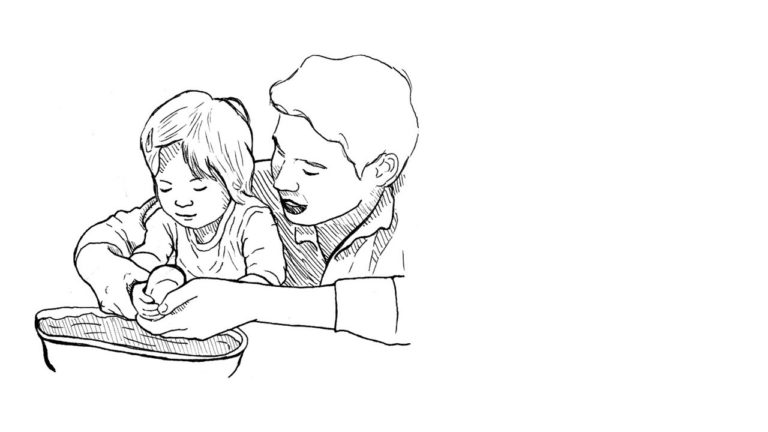 Impairments to one or more of the senses (sight, hearing, smell, touch, taste) can affect how a child gathers information from the world around them. Sensory impairments can have a number of practical considerations, such as the need for alternative modes of communication with a child with hearing impairment, for instance. Sensory impairments can have a negative impact on cognitive development, as a child may find it more difficult to learn from their environment and form social bonds.
Impairments to one or more of the senses (sight, hearing, smell, touch, taste) can affect how a child gathers information from the world around them. Sensory impairments can have a number of practical considerations, such as the need for alternative modes of communication with a child with hearing impairment, for instance. Sensory impairments can have a negative impact on cognitive development, as a child may find it more difficult to learn from their environment and form social bonds.
Common conditions that can cause delays in the development of sensory skills include:
- Congenital cataracts: clouding in the lens of the eye that can cause blurred vision or blindness.
- Retinopathy of prematurity: abnormal development of blood vessels in children born prematurely.
- Chronic otitis media: long-term problems with the middle ear, e.g. hole in the eardrum that does not heal, repeated ear infections or the presence of middle ear fluid (“glue ear”)
- Sensory processing disorder: impaired ability to adequately receive and respond to information from the senses (e.g. related to Autism Spectrum Disorder).
Domain 3. Behavioural
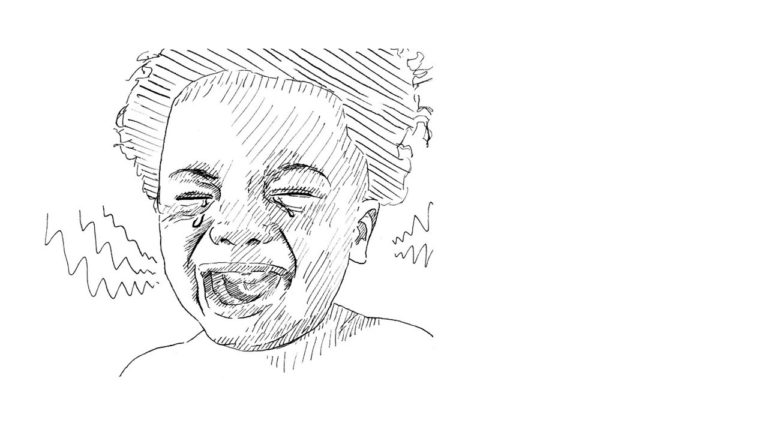 All children will display challenging behaviours when they are tired, hungry or upset, but some children may present with challenging behaviours that are inconsistent with their age and expected development. Challenging behaviours may include extreme and unpredictable tantrums, aggression and impulsivity. These behaviours may impact a child’s social development, relationships and ability to interact with their environments.
All children will display challenging behaviours when they are tired, hungry or upset, but some children may present with challenging behaviours that are inconsistent with their age and expected development. Challenging behaviours may include extreme and unpredictable tantrums, aggression and impulsivity. These behaviours may impact a child’s social development, relationships and ability to interact with their environments.
Common conditions that can cause delays in the development of behavioural skills include:
- Autism Spectrum Disorder: covers a wide range of abilities and impairments, but it is generally characterised by impairments in social interaction, behaviour and communication.
- Attention deficit hyperactivity disorder (ADHD): high levels of hyperactivity, impulsivity and inattentiveness.
Domain 4. Intellectual
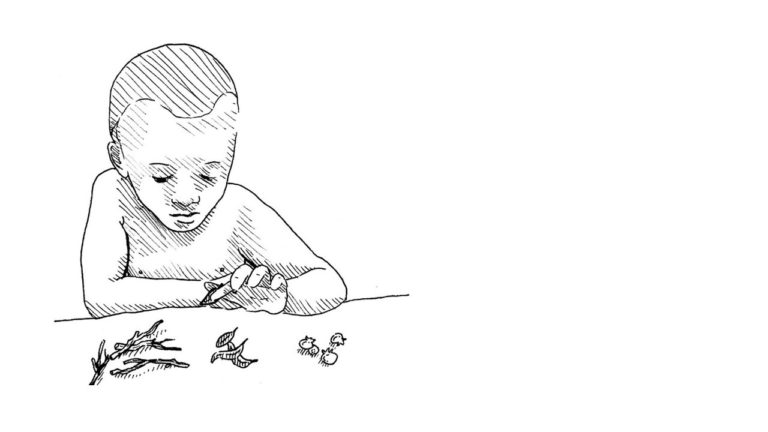 Intellectual impairment is characterised by limitations in intellectual functioning (reasoning, learning, problem solving) and adaptive behaviour (conceptual, social and practical skills). Intellectual impairments will limit a child’s ability to learn, understand and apply complex information and skills. These impairments range from mild to severe, and can negatively impact a child across other domains, including behavioural problems and communication difficulties. An intellectual impairment will therefore affect a child’s ability to learn in school and find work, and impairments may make it difficult for them to live independently as an adult.
Intellectual impairment is characterised by limitations in intellectual functioning (reasoning, learning, problem solving) and adaptive behaviour (conceptual, social and practical skills). Intellectual impairments will limit a child’s ability to learn, understand and apply complex information and skills. These impairments range from mild to severe, and can negatively impact a child across other domains, including behavioural problems and communication difficulties. An intellectual impairment will therefore affect a child’s ability to learn in school and find work, and impairments may make it difficult for them to live independently as an adult.
Common conditions that can cause delays in the development of intellectual functioning include:
- Down syndrome: caused by an additional copy of chromosome 21, it will commonly result in mild to moderate intellectual impairment. As well as likely intellectual impairments, children with Down syndrome may face delays in motor and communication development.
- Fragile X syndrome: as a result of mutations in the FMR1 gene – most males with the condition have mild to moderate intellectual impairments, about one-third of females have intellectual impairments.
Domain 5. Communication
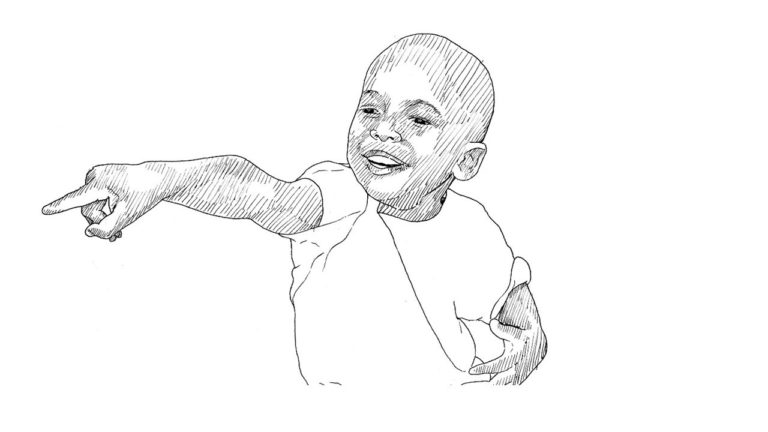 Some children will exhibit difficulties in understanding or producing language and speech, making it difficult for them to express their thoughts and feelings, or to understand others. Impairments may include limited receptive language skills, limited expressive language skills or non-speech. As a result, children with communication impairments will likely find it difficult to communicate, learn and engage in social interactions.
Some children will exhibit difficulties in understanding or producing language and speech, making it difficult for them to express their thoughts and feelings, or to understand others. Impairments may include limited receptive language skills, limited expressive language skills or non-speech. As a result, children with communication impairments will likely find it difficult to communicate, learn and engage in social interactions.
Common conditions that can cause delays in the development of communication skills include:
- Speech disorder: difficulties acquiring and producing speech, resulting in pronunciation errors.
- Speech fluency disorder: persistent and frequent disruption of the rhythmic flow of speech (stuttering).
- Language disorder: difficulties in understanding and using language (spoken and written).
Conditions across these domains can occur in isolation or in tandem with other conditions. For example, many children with cerebral palsy will demonstrate intellectual impairment, as well as motor impairment, children with autism, and related behavioural difficulties, may also present with intellectual impairment, and children with Down syndrome may find it difficult to develop communication skills.
With this in mind, healthcare professionals should take care to address the needs of the individual, based on their specific impairments and circumstances.
Share this
Integrated Healthcare for Children with Developmental Disabilities

Integrated Healthcare for Children with Developmental Disabilities


Reach your personal and professional goals
Unlock access to hundreds of expert online courses and degrees from top universities and educators to gain accredited qualifications and professional CV-building certificates.
Join over 18 million learners to launch, switch or build upon your career, all at your own pace, across a wide range of topic areas.
Register to receive updates
-
Create an account to receive our newsletter, course recommendations and promotions.
Register for free







